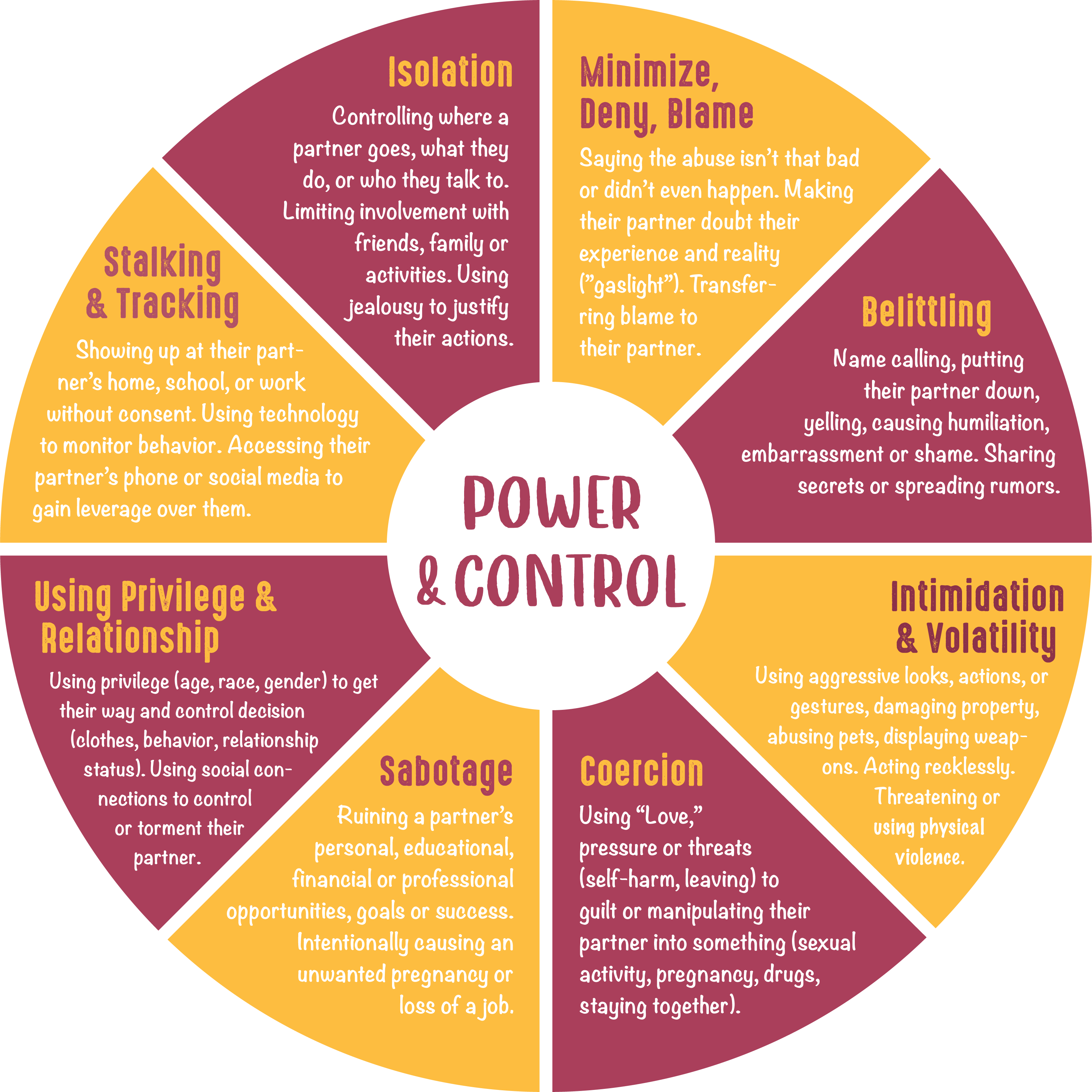What If I'm In An Abusive Relationship?
Want to check in on the health of your relationship? This quiz created by Love Is Respect can help. Make sure to flip to page 2 for the answer key. For a more interactive experience, take the relationship quiz at loveisrespect.org.
Power & Control
The image below shows some of the most common tactics of dating abuse. Dating abuse is a pattern of power and control in a relationship. This means that one person frequently tries to control their partner. They might use some or all of the methods below.

Are these things happening in your relationship? Help is available.
Sometimes when you're in an unhealthy or abusive relationship, it can feel like there's no way out or no one to talk to - or maybe you just aren't ready to tell friends or family what's going on.
The services listed below are confidential - you don't even have to say your name if you don't want to! If it's safe to call or text, consider reaching out to talk about your situation. The person on the other end of the phone won't judge you or tell you what to do. You get to decide what to share and what you need help with.
Advocates (the people who help folks experiencing harm in relationships) will often help you create a safety plan that will work specifically for your situation. They can also provide emotional support and help answer questions about what's healthy and unhealthy in relationships. If needed, they can sometimes get you connected with legal help, like if you want a protection order.
Below, you can check out local and national hotlines and services, and start to think about what kind of safety plan might work for you.
National Resources
- National Teen Dating Violence Hotline:
1.800.799.7233 - Love Is Respect: Live chat with a Peer Advocate at www.loveisrespect.org, call 1.866.331.9474, or text “LOVEIS” to 22522. Call and text is 24/7.
Local Resources
- Teen Link: 1.866.833.6546, call or text to speak with a Peer Advocate
- Northwest Network of Bisexual, Trans, Lesbian & Gay Survivors of Abuse: 206.568.7777, www.nwnetwork.org
- Lifewire (24/7): 1.800.827.8840, www.lifewire.org, Serves East King County
- Youth Eastside Services - Dating Violence Program: 425.747.4937, www.youtheastsideservices.org
Safety Planning is just what it sounds like - it's creating a customized plan to help keep you safe. You can create a safety plan if you're in a relationship that you're concerned about or to protect yourself after you've left an abusive relationship. It's good to brainstorm with friends, family, teachers or an advocate, to come up with the strongest plan possible. But it's also OK to do some thinking on your own if you're not ready to reach out. The guide below can help you think through what you might want to include in your safety plan.
